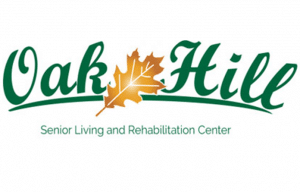ACLU joins gender debate
The situation in the Waterloo School District concerning the school board’s recently added gender identity and bathroom policy has been garnered attention outside of Monroe County.
When the situation began with a protest among about 150 Waterloo High School students in March, the nearby Belleville News-Democrat covered the following school board meeting.
Similarly, many other outlets such as the Daily Caller as well as political personalities like Ryan Cunningham, who served as campaign manager for Illinois Attorney General Candidate Thomas DeVore, have also written about the initial protest and subsequent debate.
A number of notable figures in local and state politics also attended the last Waterloo School Board meeting July 17, including former state senator and Republican congressional candidate Darren Bailey, a staffer for U.S. Congressman Mike Bost (R-Murphysboro), Rep. David Friess (R-Red Bud) and State Sen. Terri Bryant (R-Murphysboro).
Most recently, the ACLU of Illinois offered comment on the board’s gender and bathroom policy as well as the subsequent debate that has followed.
Per a press release, ACLU of Illinois Director of Communications and Public Policy Edwin Yohnka voiced his support of the school board for maintaining a policy which aligns with the requirements of the Illinois Human Rights Act.
“The School Board of Waterloo CUSD #5 is fulfilling its obligations by resisting the pressure of a handful of loud, angry voices calling for them to abandon their policy allowing students to utilize restrooms consistent with their gender identity,” Yohnka said. “Not only are such calls based on discredited stereotypes and misunderstandings about transgender students, but heeding them would also violate Illinois law. The Illinois Human Rights Act demands that all schools allow transgender students access to appropriate restroom facilities, and does not allow – as some suggest – transgender students to be segregated and exiled to separate facilities where they will feel further ostracized.”
In the press release, Yohnka goes on to say that “the law on this issue is clear in Illinois.”
He also suggested that, should the board give in to those calling for them to violate the law, it would send a message to young students that “adherence to laws is optional and dependent on who yells the loudest.”
Yohnka further noted the several elected officials and political candidates who were in attendance at the most recent meeting, similarly saying, “while every public official can oppose any policy – we call on these leaders to eschew suggestions that Waterloo can somehow place itself above state law.”
He also expressed the ACLU’s wishes that those involved in debate acknowledge the impact the policy has.
“We encourage everyone involved in these discussions to be mindful that this is not an abstract debate being performed on cable television,” Yohnka said. “The lives and well-being of young people in the community of Waterloo are at stake. Those young people should be everyone’s first and primary consideration.”
Following the press release, Yohnka spoke with the Republic-Times to offer additional perspective.
He explained that the ACLU of Illinois shared the press release given the degree to which the debate has grown in Waterloo.
A similar situation hasn’t arisen in the state for some time.
“I think that’s what made this stand out a little bit was we haven’t seen this since the rulings that have made clear that Illinois law protects the ability of students to use the restroom that conforms to their gender identity,” Yohnka said.
The most recent incident he could point to was last year during a school board election in the Chicago area.
“Last year, during the school board election cycle in suburban Chicago, we heard some school board candidates who raised this issue, but nothing that ever got to specifically challenging a policy or something of that nature,” Yohnka said.
Yohnka also noted how, in previous community-wide debates concerning bathroom or gender identity policy that he has seen, “there’s a small handful of people who generate a lot of heat and anger over this, but by and large these policies work for the students themselves.”
The Illinois Human Rights Act establishes freedom from discrimination against any individual based on race, age, sex, religion and sexual orientation, among other characteristics. The act further notes that “gender-related identity” falls under the umbrella of sexual orientation.
The school district’s policy, which was approved by a 4-3 vote, states that the school board presumes students will use private facilities based on biological sex unless a student has worked with a school social worker or counselor and administration to develop a gender identity plan which identifies what restroom the student would use.
The student’s parents would need to agree to the gender identity plan if the student is under the age of 18. Additionally, the student must review safety rules associated with the use of a restroom and adhere to these rules.
Students are prohibited from using restrooms not associated with their biological sex unless expressly permitted. Those who do so without permission, regardless of gender identity, would be disciplined.
In related news, Illinois Attorney General Kwame Raoul, joined by 16 attorneys general, late last month filed an amicus brief supporting schools’ ability to protect the privacy of transgender students who have shared their identity with school staff.
According to a June 28 press release, the brief was filed with the U.S. Court of Appeals for the First Circuit in Foote et al. vs. Ludlow School Committee et al. and argues in support of the Ludlow, Mass. school district’s practice of only sharing information on a student’s transgender or gender-nonconforming identity with the student’s parents with the consent of the student.
“Too many transgender students face bullying and discrimination on a daily basis, leading to lower self-esteem and increased risks of self-harm,” Raoul said. “During Pride Month and throughout the year, I will continue to partner with attorneys general from across the country to protect transgender youth and stand against hate and bigotry directed at the LGBTQ+ community.”
Raoul and the brief’s coalition argue that requiring schools to share information about students’ gender identity with parents against student wishes could cause a number of harms, including “undermining trust between students, creating impracticable administrative burdens for schools and improperly inserting school officials into private conversations that should take place within the family unit.”
This brief is especially pertinent to the WHS gender identity and bathroom debate given the district’s new policy has drawn criticism for requiring that transgender students work with their parents in order to access accommodations.






